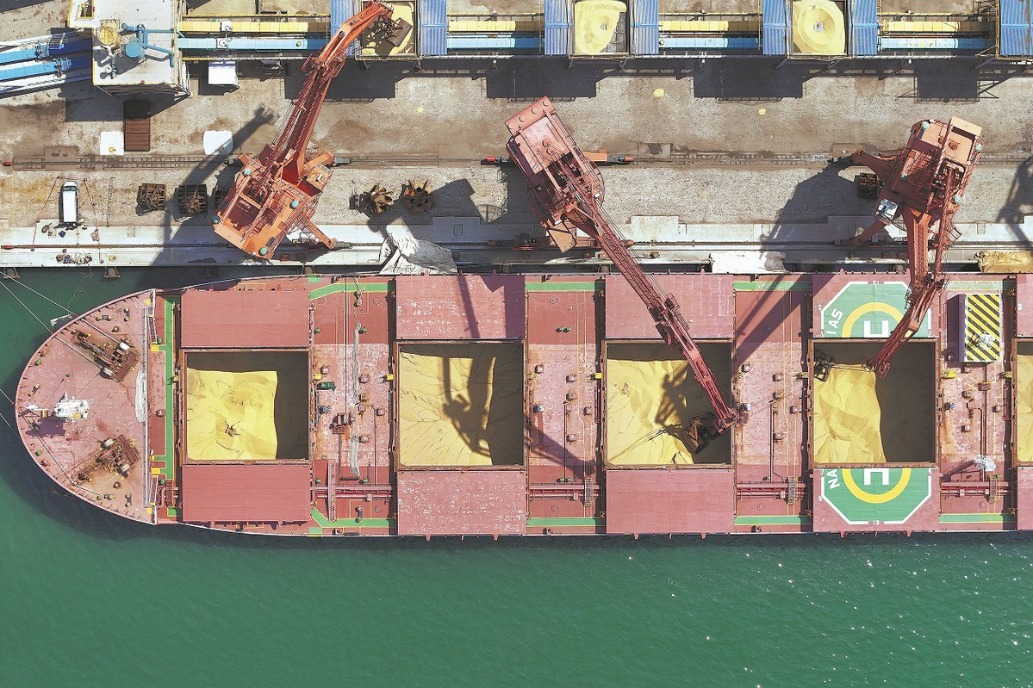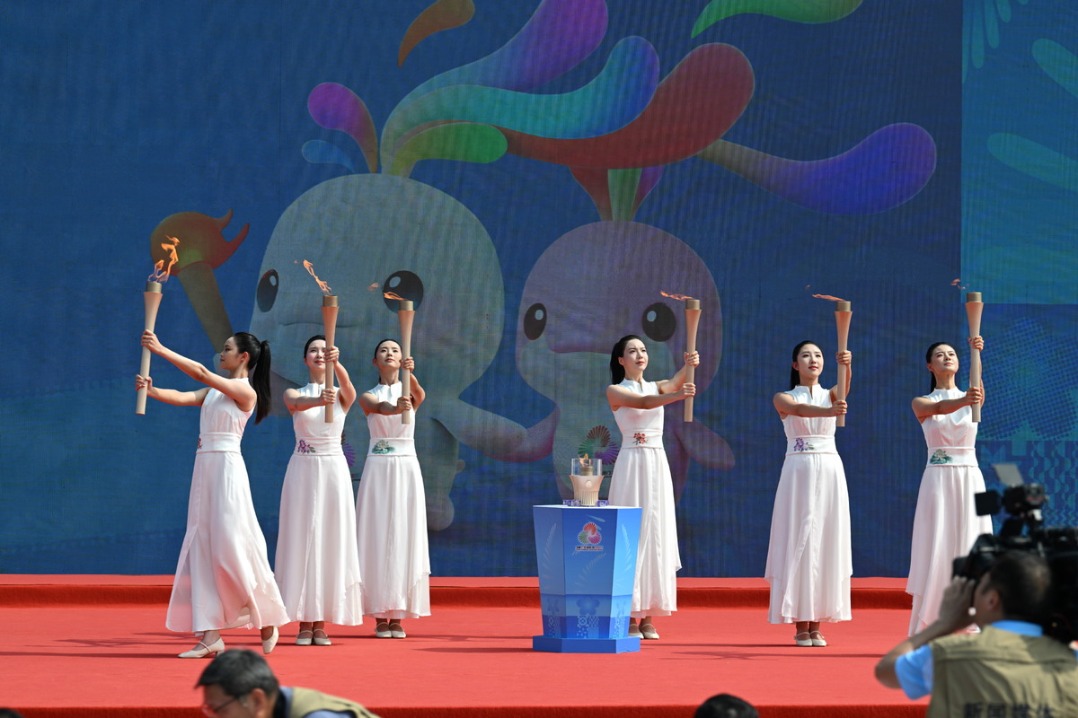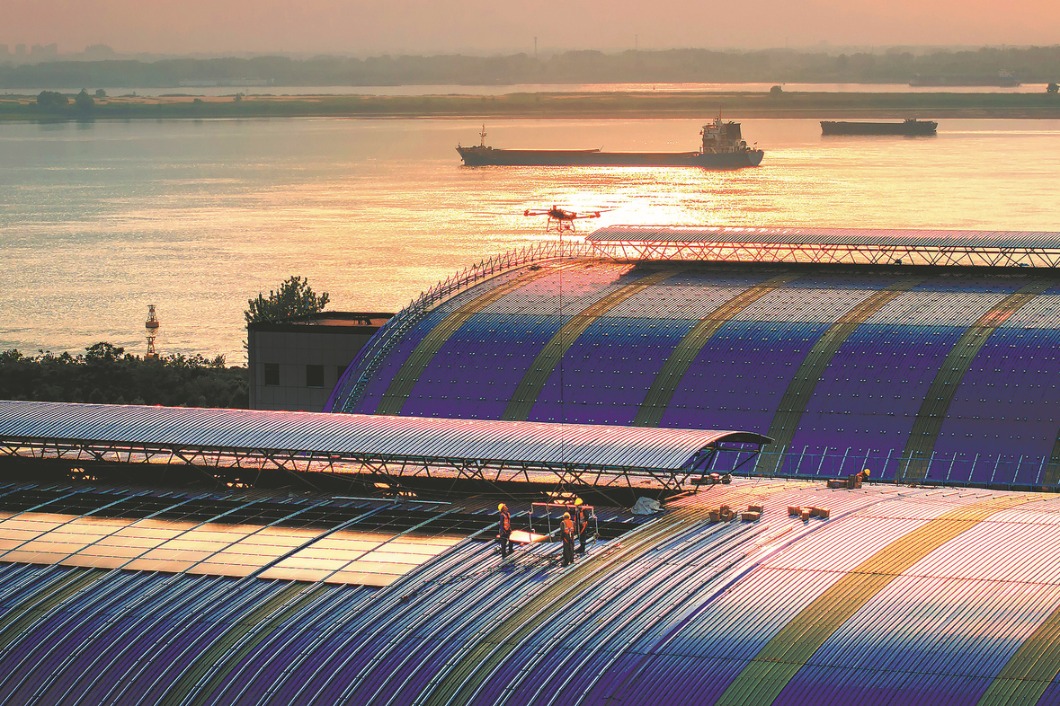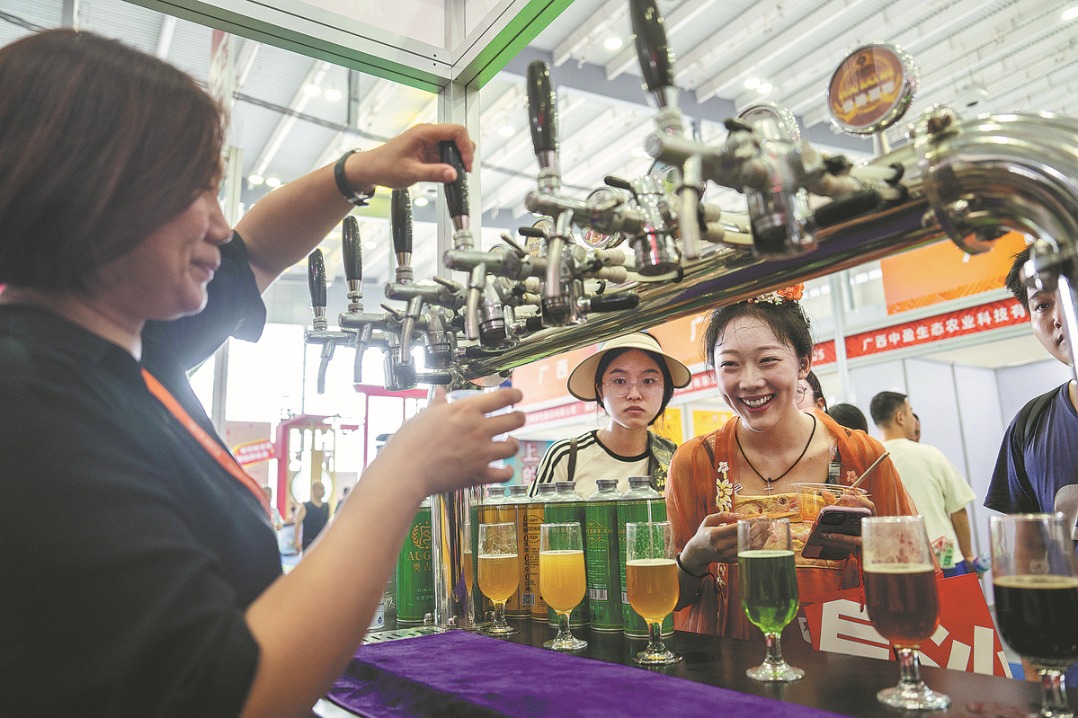Road map for the Global South
The GDI aligns closely with the development needs of developing countries and contributes to realizing the UN 2030 Agenda


The collective rise of the Global South is a defining feature of the profound changes taking place in today's world. The shared march of Global South countries toward modernization is a momentous event in world history and an unprecedented achievement in the progress of human civilization. As the international political and economic landscape undergoes profound adjustments, a new round of sci-tech revolution — represented by artificial intelligence, digital technology and the green economy — is reshaping the global industrial system. This presents a historic opportunity for Global South countries to break free from dependency-driven growth, overcome reliance on resources and move beyond marginalization.
However, with development levels being highly uneven, some Global South countries face serious challenges in improving governance, boosting economic efficiency, expanding South-South cooperation and advancing modernization. China's Global Development Initiative has laid out goals and pathways for the Global South to advance modernization together, ushering in a new stage of balanced, coordinated and inclusive development.
The development predicaments of the Global South are both the legacy of colonial history and the product of tough realities.
Domestically, three main issues stand out. First, state institutions remain weak, and governance capacity needs urgent improvement. According to the World Bank's Worldwide Governance Indicators (2014-23), some Global South countries score well below the global average in government effectiveness, rule of law and control of corruption. Second, industrial structures are imbalanced, production capacity lags behind and efficiency is low. Some countries remain excessively dependent on the exports of oil, mineral resources or primary products, with short industry chains and low added value. Third, inequality is severe. In some Global South countries, the Gini coefficient — a measurement of income inequality — has long remained high, fueling complex social tensions.
Externally, the Global South also faces three systemic constraints. First, flaws in the global governance system mean the legitimate interests and development needs of Global South countries are often overlooked during agenda-setting, rule-making and resource allocation. Second, Western monopolies in technology and the widening digital divide further aggravate imbalances. Third, intensifying geopolitical competition, as well as frequent regional conflicts, has created a dual dilemma of development and security for the Global South.
China's Global Development Initiative charts a road map for the Global South to advance modernization together and promotes a new stage of balanced, coordinated and inclusive development. As Rebeca Grynspan, secretary-general of the United Nations Conference on Trade and Development, noted, the Global Development Initiative facilitates the realization of the UN 2030 Agenda for Sustainable Development.
First, the initiative innovates global development theory, moving beyond the Western model of modernization. It places poverty reduction and shared development at the top of its agenda, with a strong focus on food security and improving living conditions, while also advancing the green economy and innovation-driven growth. It seeks broader and more inclusive development, bringing the Global South's aspirations for better livelihoods and sustainable development into the core of the international agenda, and making them priorities for the shared growth and common response of various countries.
Second, it builds a new type of global development partnership, establishing multi-level, multi-actor and multi-sector mechanisms. China's Global Development and South-South Cooperation Fund, created to support the implementation of the initiative and the UN 2030 Agenda, prioritizes the Global South's needs in poverty reduction, food security, public health and climate response. To date, China has acted on the Global Development Initiative, continued to upgrade the Global Development and South-South Cooperation Fund and supported over 20 international organizations, including the UN Development Programme, in carrying out over 180 programs in more than 60 countries, which have benefited over 30 million people and strengthened the recipient countries' development capacity.
Third, it promotes the alignment of development strategies, providing the Global South with a coordinated, efficient path to modernization. The initiative enhances strategy alignment among Global South countries, supported by the establishment of the Global Development Promotion Center Network and the hosting of the Forum on Global Action for Shared Development. The initiative also synergizes national strategies of the Global South and the UN 2030 Agenda, accelerating progress on the global development agenda. Meanwhile, the alignment between the development strategies of Global South countries and China's own strategies is also prioritized. This includes high-quality implementation of the Belt and Road Initiative, coordination between the Global Development Initiative and regional trade agreements such as the Regional Comprehensive Economic Partnership, and policy, infrastructure, trade, financial and people-to-people connectivity. China has also deepened strategy alignment with regional organizations such as the Association of Southeast Asian Nations, the African Union and the Community of Latin American and Caribbean States, further strengthening both regional and interregional cooperation and fostering stronger, greener and healthier development in the Global South.
Fourth, it accelerates talent development, providing critical human resources and intellectual support for modernization. Strengthening cooperation on human capital is an important practice of China's people-centered development philosophy and its efforts to build a community with a shared future for humanity. So far, China has carried out about 15,000 training programs for over 180 countries and organizations, through short- and medium-term training in China, academic degree programs, overseas advisory work and youth volunteer projects. Covering 17 fields and more than 100 disciplines, these include more than 500 governance-focused sessions, training over 500,000 professionals and significantly enhancing the self-development capacity of other Global South countries.
Fifth, it advances technology transfer and innovation cooperation to enhance the Global South's capacity for sci-tech innovation and independent development. The Global Development Initiative emphasizes emerging fields such as AI, digital technology and the green economy, encouraging tech cooperation and collaborative innovation between China and different countries and regions. An action plan for the development of digital China-Africa cooperation, released in 2024, sets out several key initiatives, including digital infrastructure and digital innovation. These advances in information infrastructure are not simply about technology transfer — they represent a redistribution of development rights. By building digital infrastructure, they aim to restructure value distribution and enhance the Global South's ability to innovate, access technology, and pursue independent development.
The author is a professor and the dean of the School of International Governance Innovation at Guangdong University of Foreign Studies. The author contributed this article to China Watch, a think tank powered by China Daily.
The views do not necessarily reflect those of China Daily.
Contact the editor at editor@chinawatch.cn.


































